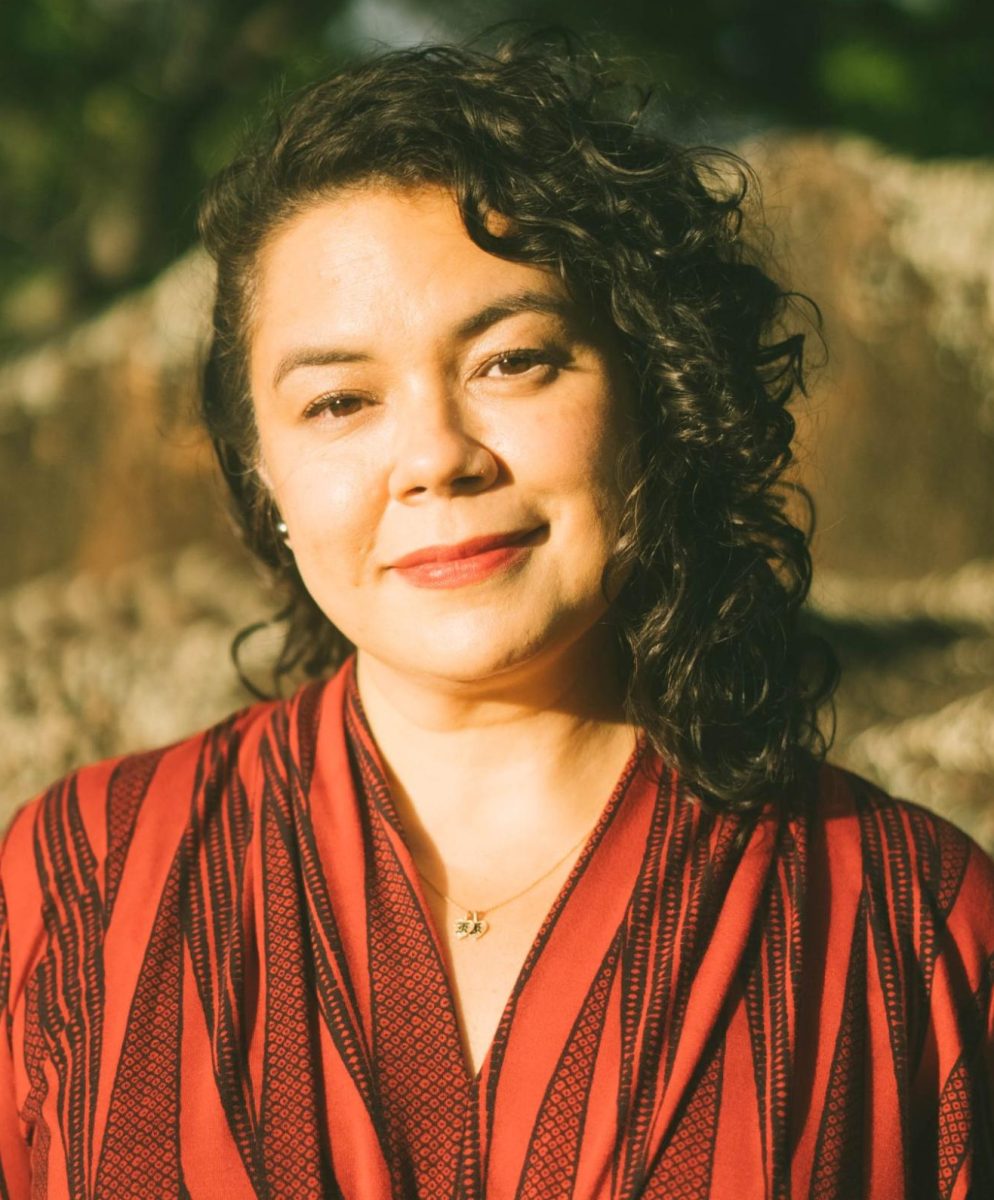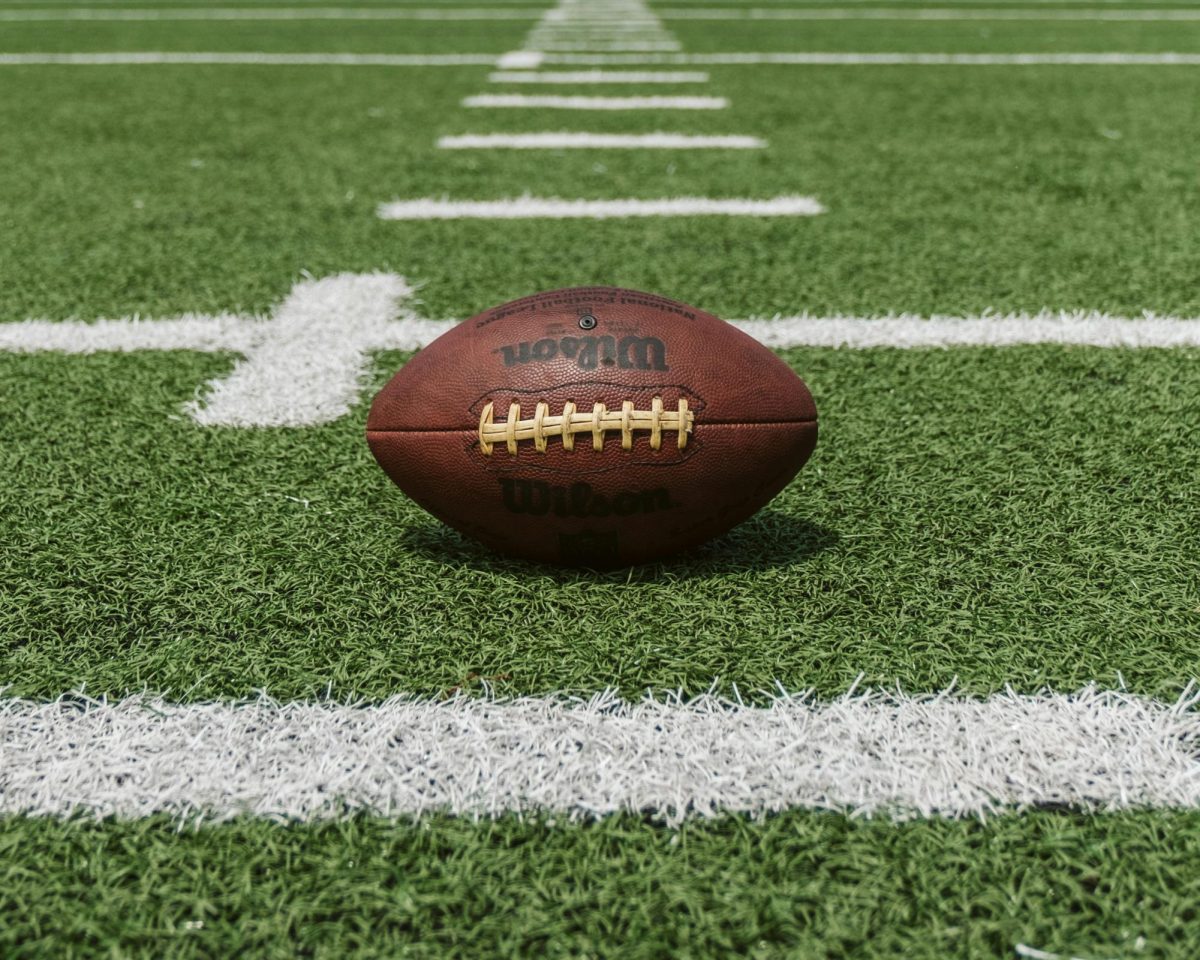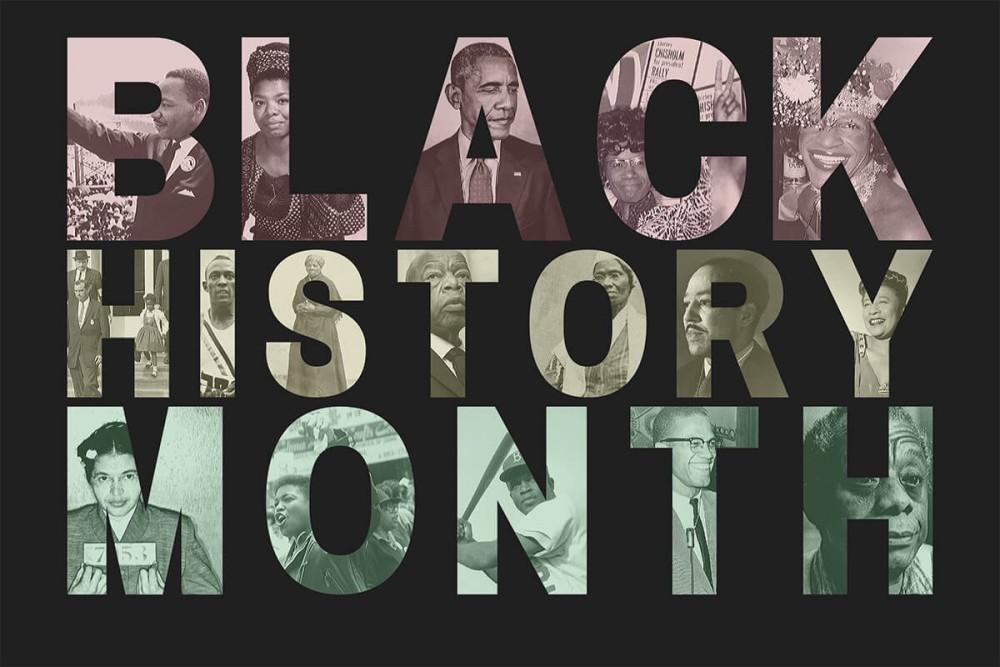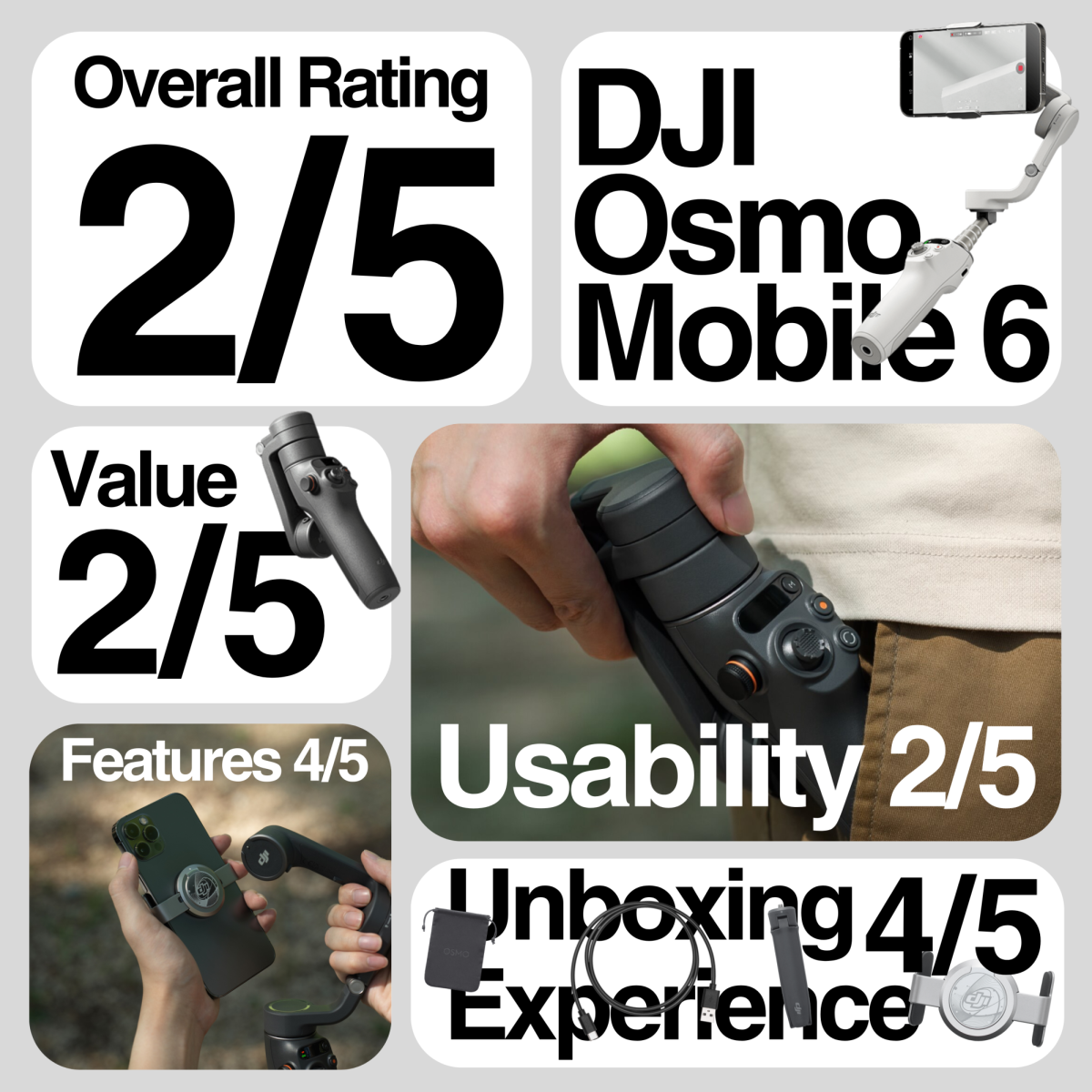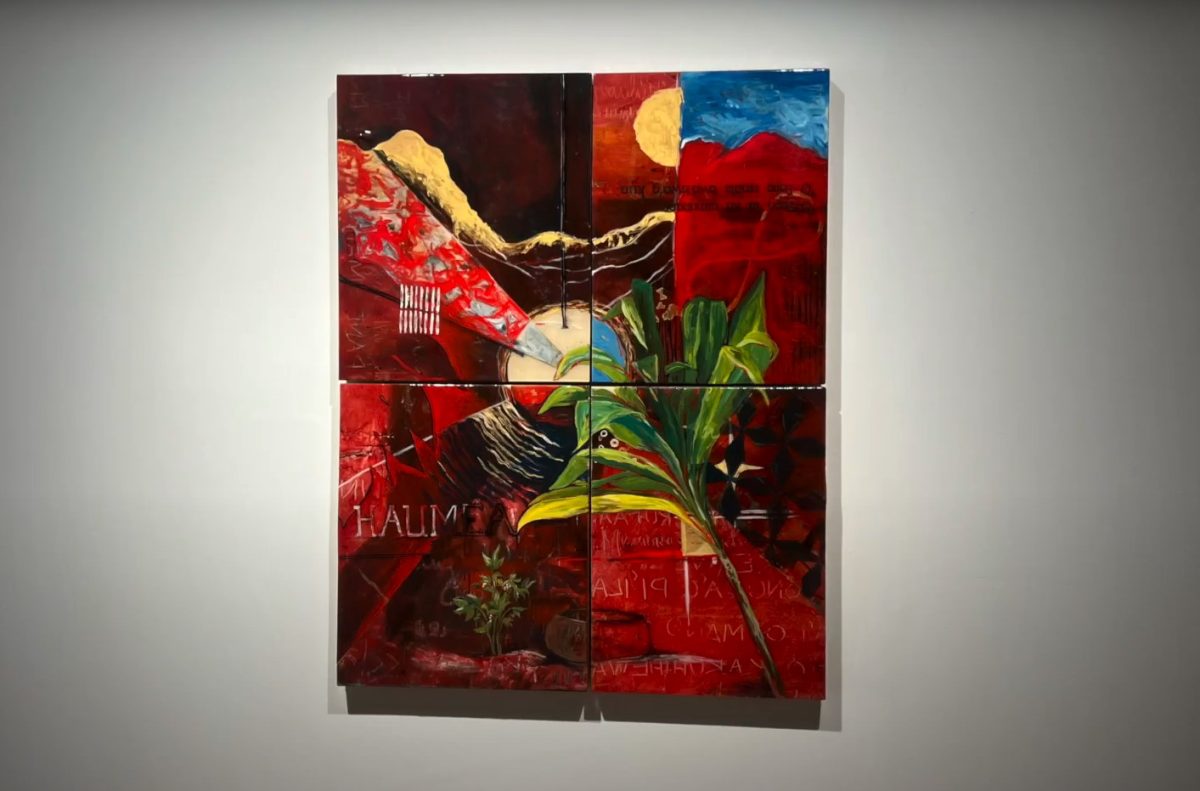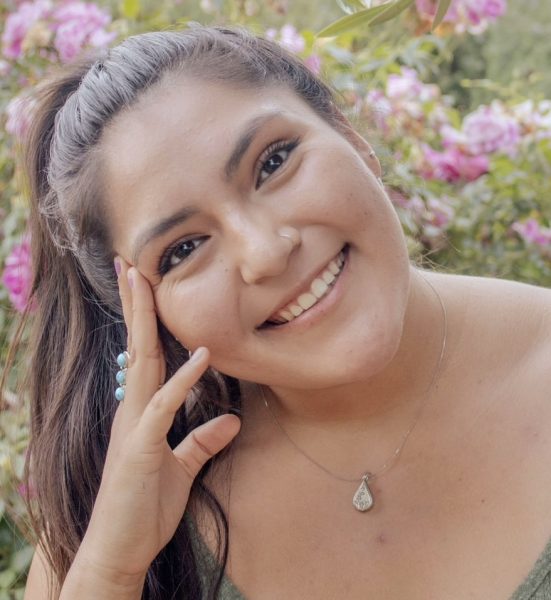Brandy Nālani McDougall — a mother, educator and 2023 poet laureate of Hawai — uses the power of words to communicate about decolonization.
The Mirror’s Mackenzie Olivo interviewed Nālani McDougall recently as a way to learn more about the aims and actions of an indigenous poet who is making strides in her line of work. This Q&A has been lightly edited for clarity.
What was your journey toward becoming the state’s Poet Laureate?
Being the Hawaii Poet Laureate was somewhat of a surprise. It is a very new program that the state created. So although I’m not the first poet laureate for Hawaii, the person who helped fill that position before me, Kealoha held it for 10 years and without any funding, and was appointed by then Governor Neil Abercrombie. There was an interview process, application process and then a panel of people who made the decision. There is some funding attached to it for programming and events and things like that, and then a stipend for me as well.
What was your journey like with poetry before being named the Hawaii poet Laureate?
Once I discovered my love of writing poetry, which was lifelong. But when I really started to think of myself, as possibly being a writer of poetry, was when I decided to pursue a Master of Fine Arts and Poetry. That was about over 20 years ago. Since then, I have devoted a lot of my time, anxiety, blood, sweat, and tears into becoming a poet.
Poetry originally was something for me to be able to relieve a lot of childhood trauma. To reflect on that, and heal myself in a way that would be healthier than trying to just push it away, and pretend it wasn’t there. Inevitably, it would just show up anyway. It would come up with relationships, friendships, work, or environmental issues. There were ways in which it would affect my decision making, my ideas of self care which, early on before poetry, really didn’t exist. Poetry really helped me manage and also really taught me to prioritize myself and, and to take care of my own emotionality.
Was your intention with poetry to implement a storytelling ideology? What kind of power does a poem have that tells a story versus one that does not?
I think all poems tell a story, even if it’s just part of a story, or if it’s just part of a vision, image or journey in someone’s mind. As human beings, we are naturally drawn to hearing stories. Whether it’s stories of other people around us, or even just being able to imagine a story. There are ways in which we all understand that stories are really powerful, and can transform us, disempower us and take something away from us. I think we’re often raised with the idea that stories are something else. I think a lot of the colonial world has really tried to strangely reinforce us to view stories as purely for entertainment. So I think, many people who have grown up in that colonial situation can understand the way that stories, especially the stories that we are fed about ourselves within a colonized environment, are intended to hold us down.
Getting in touch with stories that can build us up, understanding the stories of our ancestors, finding and creating new stories, where we are the heroes and we are the people who have overcome are really important stories that can spread and connect and empower us as people. They also impart a lot of knowledge about how to do that too, which is really important.
As the state Poet Laureate, do you have a loyalty to represent the state of Hawaii, meaning to recognize Hawaii as an asset of U.S. ownership? What does that do? Does that impact your work at all?
You’re hitting upon the exact tension that’s been there since I started. When I refer to myself, or I share my position, I say the Hawaii poet laureate, rather than the Hawaii state poet laureate. It is impossible for me to be able to see statehood in Hawaii as anything but a fake state. If you look at the history of the lands now considered to be the United States, you will see it is built on illegality, illegitimacy, violence and dispossession.
In the history of Hawaii, our Queen was forced to abdicate her throne, following the illegal overthrow of the Hawaiian Kingdom, which was backed by a powerful U.S. military. Hawaii would not have been able to fight without a military of its own even though there was no military here. They continued to use violence to be able to hold it until it was illegally annexed to the United States. So many of us knew, just one illegality on top of another, then leading to what is now understood as the fake state of Hawaii.
What does it mean for a Kanaka ‘Oiwi woman to hold this position?
I am raising two young women, and I want them to know and understand things that I had always had questions about as I was growing up that nobody was talking about. Americanization was still really ingrained into all of our systems, and it still is now, but there was no space to talk about it, or to explore the tensions that are there. I want to do what I can to create a space where people feel like they could be empowered to challenge the colonialism of the United States in Hawaii. For people to know our history or ways we can challenge that and move forward and also heal in the process.
I am really invested in creating those spaces through my work to continue to be strong and healthy, and move toward decolonization in life and in the political realm, too. So all of that is very much a part of my platform on healing. It is healing physically, but also psychologically, from everything that came from being isolated, within these nuclear family households, which are themselves a colonial construction to separate and isolate people and control them.
I hope my poetry creates a space for people to think about healing from that isolation, but also a way to heal for themselves. Where they could take care of the anxiety, and all of these emotions that play a role in our physical well being, as well as to heal colonialism—which is so much a part of the physical. We need to be able to uncover, reflect and confront it, to heal it. So that’s what I choose to write about. I also choose to write about ways to overcome it once it has been confronted.
What role does using mo’olelo (Hawaiian story and language) play in your poems?
It’s so important. My first book, which was published in 2008, and I remember I made the decision to not include a glossary. There were people who were really angry about that. They felt I was making my work inaccessible in that way. It is a feeling of entitlement to not being able to read it in the language that’s accessible to you.
I felt like, oh gosh, that is such a colonial mindset. I have to be writing in English, like, why can’t you respect my language sovereignty? Why can’t you, if you really want to know what you know, it’s not really inaccessible to you. At the time, there was an online dictionary, you could find out if you really wanted to know. But the reason why I chose to do that was because I wanted to ensure that speakers of the language are able to see our language being used.
Your work represents the intersection between academia and indigeneity. Do you see your work that way; as a testament to a decolonial perspective?
As indigenous people, we are always going to be politicized to some extent, even our personal lives. Whatever we say, whenever we speak out is challenged. I think it’s so important to be able to draw from knowledge that enables us to analyze what’s happening around us, because the analysis enables us to understand and see the larger structures that are also in place. I think it’s really easy to place focus on your own personal traumas and personal problems, without necessarily seeing the larger picture of how your personal traumas and personal problems were created by a larger colonial structure. I remember as a kid, always feeling like something is wrong and why is it like this? Why do we live in Hawaii and we’re Hawaiian, but we are Americans? We are part of the United States. It always felt like a missing piece that had always been there. Like, why do we speak English and not Hawaiian? What’s Hawaiian in my life?
There’s a state of confusion in that, and you question that, and you wonder about that missing piece that has never really filled in for you. Being able to learn our history, the history of the United States, and the ways in which it makes decisions and what it is built on: structures of colonialism. Slavery is part of that, like how indigenous dispossession, racism, sexism, patriarchy, heteronormativity, ableism, and how all these things are such a part of the structures of colonialism. It really helps you to see it’s not you being deficient as a person, but rather the ways in which your world has been constructed for you to believe that about yourself. I think that idea in and of itself could be so powerful for so many people who have internalized this idea that they’re not good enough, that there’s something wrong with them. There is nothing wrong with you, what is wrong is the world and systems that surround you.
What do you think the power of your words are in terms of a future towards decolonization?
I think the power of my words right now are really informed by the present. So, emphasizing that we are the same people and trying to make sense of an impossible and oppressive system. To understand that is also to be part of human experience. Now, these horribly oppressive systems run by some humans to ensure that other humans are held down, but there’s so much strength in being able to form connections with and to share with other people in similar situations to say, I understand. I understand what you and your people have endured and continue to endure. This is what my people have endured and continue to endure. I just want you to know that I understand, and I support you, and I see you. So much of that is also our invisibility and feeling completely unsupported. It makes a difference to be able to have that validated, and to see other people showing up for you.
My most recent work is using poetic space to demonstrate Hawaiian solidarity. The ways in which Hawaiians can form these connections with other oppressed people, and to put that into conversation with our own experiences because they’re all connected in that way.
What is the importance of practicing and sharing these stories through the medium of literature?
We are really lucky that many of us, as indigenous peoples in particular, have access to our ancestral literature. So I think it’s so important for writers to be really thoughtful about incorporating ancestral literature, always ensuring that ancestral literature is a part of it. So prioritizing, and reading our ancestral literature, and reading it in our ancestral languages as much as possible, or in trusted translations, would enable you to see the literature that you come from. The way in which you, as a writer, as a person, a storyteller, a poet, is continuing the wisdom and the stories of your ancestors, so to see yourself as like a continuation of that, as being called in this really important way to continue that, enables you to see how we are like all continuations of our ancestors.
In that sense, we can think about what they thought and what they felt, and they’re not so far away from us in that way. They are always in us, and part of us. From a Hawaiian perspective, it’s really important, because our inspiration comes from our ancestors, so being able to be open to that and understand your ancestors and how they might be speaking to you and how they might be showing you things is something really important for you to remember as you are writing.
Writing is often viewed as a solitary thing, and sometimes you might feel really alone, but I want to say that most of the time when I’m writing, I don’t always feel alone because I feel like there is a lot of support from my ancestors. I want to say that it’s Kupuna (elders), who are really sharing ideas, encouraging you along, or even making the time fly by so that you get lost in it. You feel genuine joy, as you’re writing or you’re really happy with what you have written. We should take it as reassurance that our ancestors are there and they are communicating with us and helping us along.


